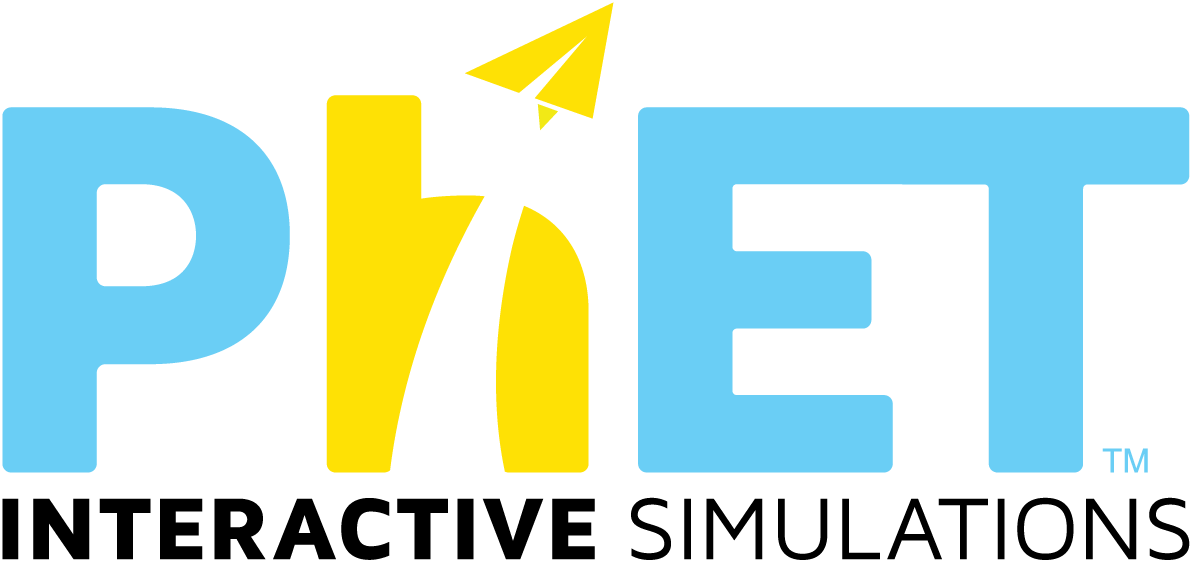200 αποτελέσματα αναζήτησης που ταιριάζουν Browser based
Προσομοιώσεις
- Αντιδρώντα, Προϊόντα και Υπολείμματα (HTML5)
- Ζευγάρια αριθμών (HTML5)
- Ιδιότητες αερίων (HTML5)
- Κτίσε έναν Πυρήνα (HTML5)
- Μεταφορά μεμβράνης (HTML5)
- Κανάλια μεμβράνης
- Μόρια και Φως (HTML5)
- Σχήματα μορίων (HTML5)
- Τετράπλευρο (HTML5)
Δραστηριότητες
- Online Assignment 4 Ms & Ss
- Pendulum Lab 2: Find g (Inquiry Based)
- Images from Convex Lenses (Inquiry Based)
- States of Matter (Inquiry based) Phase Change and Phase diagrams
- pH Scale inquiry-based intro to acid-base
- Waves on a String (Inquiry Based)
- Magnets-Introduction (Inquiry Based)
- Sound: An Introduction (Inquiry Based)
- Modeling Friction (Inquiry Based)
- Moving Man (Inquiry Based)
- Waves: Superposition (Inquiry Based)
- Wave unit (Inquiry Based)
- Arithmetic Games (Inquiry Based)
- Wave Representations (Inquiry Based)
- Reactions and Rates 1 Introduction to reactions (Inquiry Based)
- Ladybug Motion 2D Vector controls for circle/elliptical motion (inquiry based)
- Equation Grapher: Sketching Linear and Parabolic Graphs (Inquiry Based)
- Introduction to Static Electricity using Electric Field Hockey and Charges and Fields (Inquiry Based)
- A Projectile Motion-Introduction (Inquiry Based)
- Inquiry Based Modeling Static Electricity
- Balancing Chemical Equations - Inquiry based Introduction
- Balloons and Bouyancy: An Introduction to Bouyancy - (Inquiry Based)
- Kinetic Molecular Theory- Introduction (inquiry-based)
- Induction (high school version) (Inquiry Based)
- Wave Modeling and Wave addition (Inquiry Based)
- Induction (college homework version) (Inquiry Based)
- Fourier Making Waves Game (Inquiry Based)
- Salts and Solubility 2: Solubility (Inquiry Based)
- Reactions and Rates 4 lessons (Inquiry Based)
- Wave clicker questions (Inquiry Based)
- Electric Energy and Capacitance demonstrations (Inquiry Based)
- Build an Molecule - Inquiry-based basics
- Static Magnetic and Electric unit (Inquiry Based)
- Algebra-based Physics Semester one lessons, clicker questions, and schedule in pdf (Inquiry Based)
- An investigation into Building Electric Circuits (Inquiry Based)
- Gases Understanding physical properties of gases (Inquiry Based)
- Reactions and Rates 2: Intro to Kinetics (inquiry based)
- Reactions and Rates 3: Introduction to Equilibrium (Inquiry Based)
- Pendulum Lab 1: Intro to pendulum (Inquiry Based)
- Salts and Solubility 5: Designer Salts (Inquiry Based)
- Vector Addition 1: Introduction to vector math (Inquiry Based)
- Conservation of Energy using Masses and Springs (Inquiry Based)
- Circuit Construction Kit- series of three activitites (Inquiry Based)
- Build an Atom - Inquiry-based basics (homework version)
- Concept questions for Physics using PhET (Inquiry Based)
- Maze Game 2: Vector controls for circular motion (Inquiry Based)
- Reactions and Rates College version for tab 3- kinetics (Inquiry Based)
- Maze game: 2 activities in pdf (Inquiry Based)
- Circuit Activity 2 Series & Parallel Circuits (Inquiry Based)
- Ramp Activity 2: Calculating Net force on an incline (Inquiry Based)
- Salts and Solubility 1: introduction to salts (Inquiry Based)
- Salts and Solubility Concept Questions for 5 activitites (Inquiry Based)
- Wave demonstrations: water, sound, light (Inquiry Based)
- Salts and Solubility 3: Solution Equilibrium and Ksp (Inquiry Based)
- Conservation of Energy using Masses and Springs (homework version) (Inquiry Based)
- Energy Skate Park Clicker Questions (Inquiry Based)
- Ladybug Revolution activity: Exploring rotational motion (Inquiry Based)
- Circuit activity 3 Combination Circuits (Inquiry Based)
- Vector Addition 2: Understanding Force equilibrium (Inquiry Based)
- Circuit 1 Properties of Electric Circuits (Inquiry Based)
- Travoltage Lab
- Forces and Motion activity 1: Predicting speed and directions changes (Inquiry Based)
- Estimating the Length of Everyday Objects (Inquiry Based)
- Curve Fitting: How well does the curve describe the data? (Inquiry Based)
- Forces and Motion: Balanced and Unbalanced Forces, and Predicting Changes in Motion (Inquiry Based)
- Ramp Activity 1: Using free body diagrams for motion on an incline (Inquiry Based)
- Circuit activity 3 Combination Circuits using CCK only (Inquiry Based)
- Maze Game 1: Using vector representations to move through a maze (Inquiry Based)
- Circuit activity 2 Series and Parallel Circuits using only CCK (Inquiry Based)
- PhET Collision Lab
- Conservation of Energy 4 Energy Skate Park: Calculations with Conservation of Mechanical Energy using time graphs (Inquiry Based)
- Force and Motion activity 2: Relating graphs and free body diagrams using Moving Man and Forces 1D (Inquiry Based)
- Energy Skate Park for Middle School(Inquiry Based)
- Introduction to Magnetic Fields (bar magnets and electromagnets) - Inquiry Based
- Reactions and Rates 4: Equilibrium LeChatlier
- Projectile Motion - developing understanding.
- Radioactive Dating Game inquiry
- How Will This Isotope Decay?
- Atomic models homework (Inquiry based)
- Circuit Lab 2 - Series and Parallel Circuits
- Plate Tectonics Inquiry
- Color Vision Remote Lab
- Kinetic Molecular theory review
- Electromagnetic Induction
- Student Worksheet based on Inquiry Newton's Second Law
- Lembar Kerja Siswa Berbasis Simulation Based Laboratory
- Pendulum Lab Learning Goals by design team (Inquiry Based)
- Energy Skate Park Learning Goals for four activities (Inquiry Based)
- pH Learning Goals by developement team (Inquiry Based)
- Reactions and Rates: Learning Goals from the design team (Inquiry Based)
- Snell's law Lab - Inquiry based
- Initial Magnetism Investigation (Inquiry Based)
- Conservation of Energy 1: Introduction (qualitative approach)
- Exploring Data to Make Predictions
- Waves Intro Remote Lab
- Density: How Does Density Relate to Mass &Volume and an Object's Interaction with Water?
- Discovering patterns of current and voltage in series and parallel circuits
- Roller Coaster Physics Investigation
- How to make a laser
- Understanding the Photoelectric Effect
- Activity in Mechanics (Collisions)
- Resistance in a Wire Remote Lab
- Forces and Motion: Tug O' War
- Introduction to Discharge Lamps
- Refraction Investigation
- Visualization and Visual Illusions SIM Homework
- Intro to Series and Parallel Circuits
- EM wave analogy tutorial
- Simple Inquiry-based Build an Atom Simulation Student worksheet
- Inquiry-Based Learning Worksheet on Elasticity Using PhET Hooke’s Law Simulation
- Completing a circuit
- Sources of Variability - Investigating Projectile Data Lab
- MRI lecture and homework
- Discovering Beer’s Law by a Simulation-based Laboratory
- 3 Activities for Kepler's Laws of Planetary Motion
- Intermolecular Forces and Molecules - Interactive Lecture Demonstration
- FARADAY'S LAW
- Coulumb's Law Activity
- Fluids Lab
- Middle School and High School Common Core Alignment Document
- Traffic Control: How Cells Manage Molecular Movement
- Why do objects float?
- Circuits 3 Day Unit
- Series and Parallel Circuits
- Exploring Fission (inquiry)
- Defining and Measuring Acids and Bases
- Determination of Gravitational Acceleration
- Gene Regulation Guided Simulation
- Relationship between electricity and magnetism
- A PhET-Based Laboratory Activity in Teaching Direct Current Circuits (Guided Inquiry with Formative Assessment)
- Energy Skate Park: Basics
- Concentration Lab with Molarity Calculations
- Exploring parallel and perpendicular lines
- Investigating waves
- Gravity Force Lab
- Projectile Motion Exploration
- Charges and Fields Lab
- Phet Solar System Simulation Lab
- States of Matte Inquiry
- Exploring Rectangles (area and perimeter)
- Introduction to Electrostatics
- KE and PE with the pendulum, Student
- Forces and Motion activity questions
- Greenhouse effect activity
- Wave Properties and Interactions Lab Manual
- PhET Lab Energy Skate Park 2
- Factors Affecting The Frequency of A simple Harmonic Oscillator
- Lab: Gas Laws Simulation
- PhET Sugar and Salt Inquiry Questions
- Population Ecology: Predator/Prey Relationships
- Investigating Glaciers
- Blackbody Spectrum
- Batteries
- Conservation of Energy (Energy Skate Park)
- Circuit Lab 1 - Properties of Electric Circuits
- Current in DC Circuits
- Introduction to Fourier Analysis
- Moving Man (Motion Intro)
- Gas Properties
- PhET Atom Simulator
- Isotopes
- Modeling Isotopes
- Discover a Spring "Stretching Law" (Hooke
- Spectra of Light
- Exploring Vectors and Projectile Motion
- Finding Planck's Constant
- How are products and factors related?
- Ripple While You Work
- Equilibrium and Le Chatelier's Principle
- Proving Newton's Second Law
- NUMBER LINE (DISTANCE)
- Projectile Data Lab (with CODAP) Lab 3 of 3: Advanced topics in measurement uncertainty
- Lab - Natural Selection
- Light and Atoms
- The Dichotomous Key
- Gas Laws, Quantitative, Gay-Lussac's law
- Introduction to the Buoyancy
- Projectile Motion
- Predicting the impact point in horizontal launch simulations
- Gas Laws, Quantitative, Boyle–Mariotte law
- Gas Laws, Quantitative, Charles' law
- Remote Learning Molecule Shapes
- Greased Lightning
- Wave Interference Lab: Path Difference impact on Constructive and Destructive Interference
- Discovering Method to Determine The Speed of Wave on a String
- Modelling Motion
- Opladen door wrijving, influentie, geleiders en isolatoren - Google Quiz - guided inquiry
- Memprediksi gerak benda dengan analisis Hukum Newton (Inkuiri)
- Unusual cases of oscillation
- Computer Simulations as a Tool to Assist Teaching Basics of Electromagnetism (Simulações Computacionais Como Ferramenta Auxiliar ao Ensino de Conceitos Básicos de Eletromagnetismo)
- Optical Quantum Control_Optical Pulse Shaping_PhET


